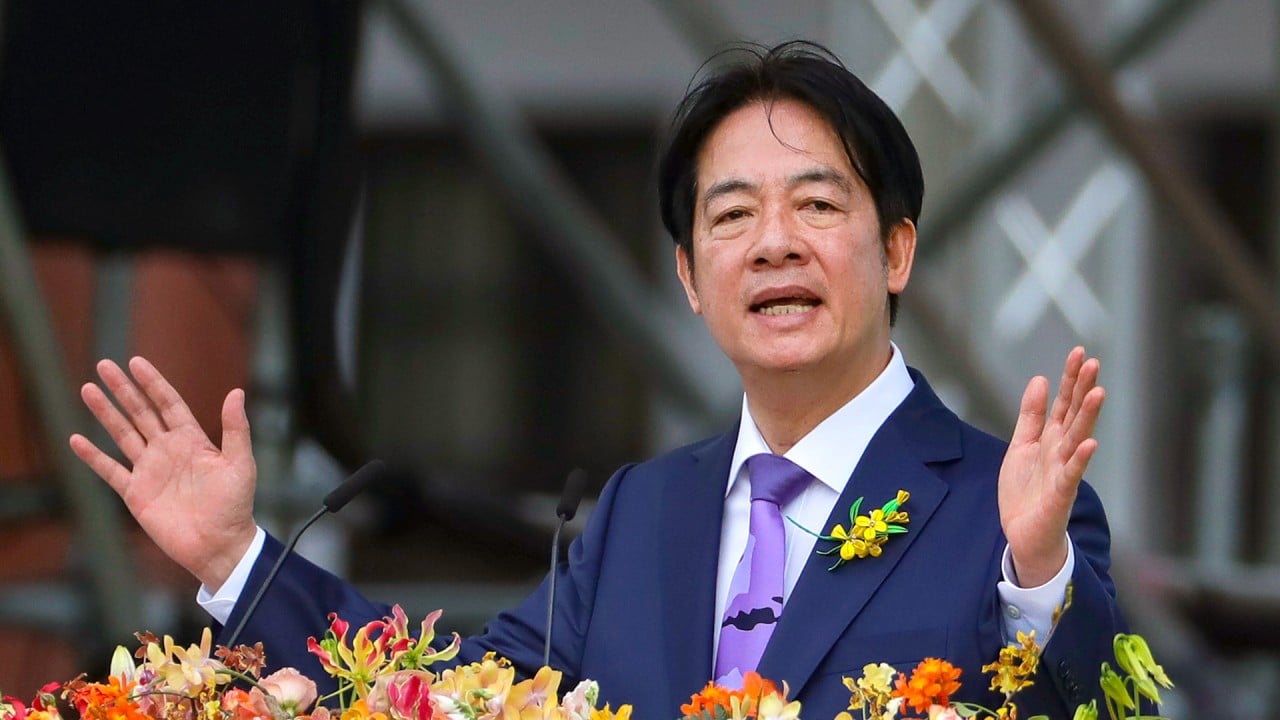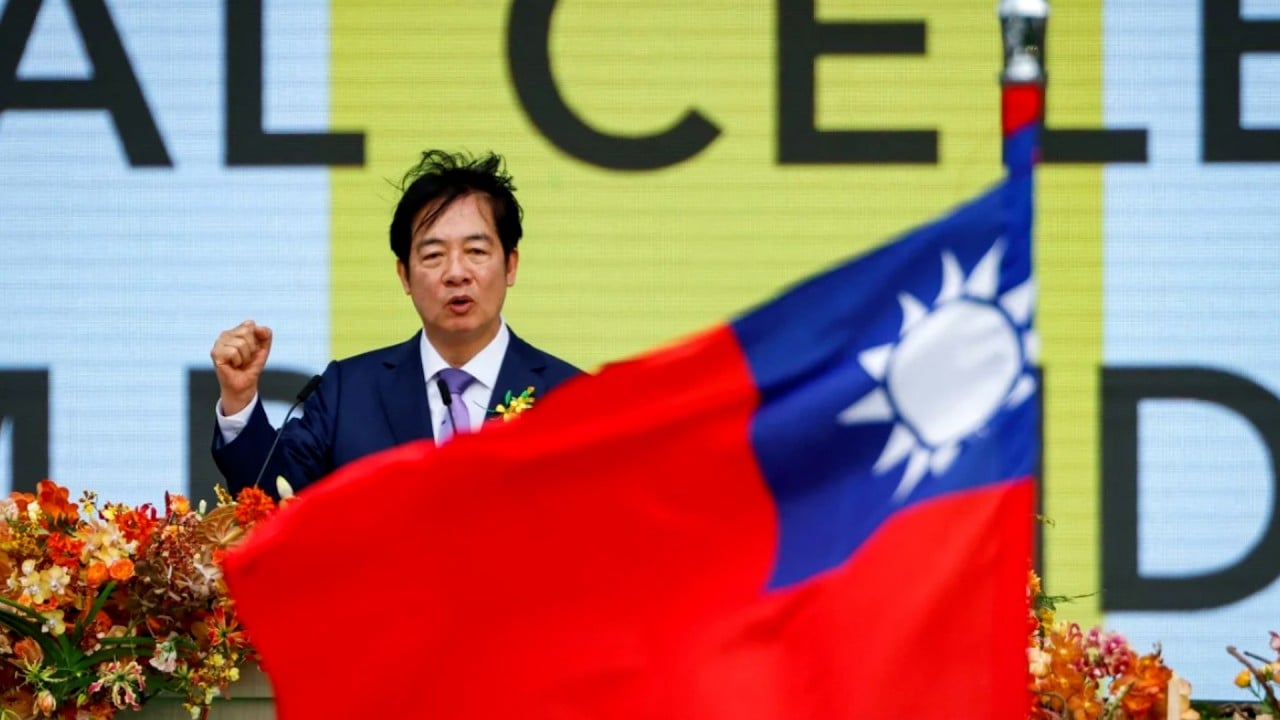
Beijing rejects Taiwan leader’s offer on tourism and student exchanges, saying Lai is ‘insincere, more radical’
- Taiwan Affairs Office releases another strongly worded statement following William Lai’s inauguration on Monday
- ‘The entire speech was filled with antagonism and provocation, lies and deception,’ office says
The mainland’s Taiwan Affairs Office (TAO) released another strongly worded statement on Tuesday evening, saying Lai’s attitude in his inauguration remarks was “extremely rampant” while “his advocacy is even more radical” than before.
“The entire speech was filled with antagonism and provocation, lies and deception – the ‘Taiwan independence’ stance is even more radical and risky,” according to the 1,200-word statement.
Lai delivered a tougher inauguration speech than Tsai did in 2016 and 2020 to reinstate the party’s stance that the Republic of China, Taiwan’s official name, and the People’s Republic of China “are not subordinate to each other”.
“I hope that China will face the reality of the Republic of China’s existence, respect the choices of the people of Taiwan and in good faith choose dialogue over confrontation, exchange over containment,” Lai said.
“Under the principles of parity and dignity, [it should] engage in cooperation with the legal government chosen by Taiwan’s people. This can start from the resumption of tourism on a reciprocal basis, and enrolment of degree students in Taiwanese institutions.”
In response, the mainland office said Lai delivered “empty talk about ‘replacing confrontation with dialogue and exchange with containment’ under the guise of ‘peace and co-prosperity’ and had some people making the mistake he had goodwill and sincerity in improving cross-strait relations”.
Denying responsibility for a failure to resume ties, the TAO said “the fact that mainland residents and students are unable to travel or study in Taiwan is entirely caused by the DPP authorities”.
While accusing Taiwanese leaders of not “repenting for their past mistakes” and “adding preconditions of bilateral reciprocity” on travel and education, it asked, “where is the genuine sincerity in promoting cross-strait exchanges”.
Beijing stopped allowing individual mainlanders to visit Taiwan in 2019, citing cross-strait relations. Two-way group tourism was completely halted in the Covid-19 era and has not resumed. Both sides have barred new students from pursuing degrees on the opposite side of the strait since the pandemic.
Beijing’s statement also rejected Lai’s labelling in his speech of mainland “military actions and grey-zone coercion” and it hit out at his call to step up deterrence with other democracies.
The TAO said “no one hopes to achieve reunification of the motherland [with Taiwan] through peaceful means more than we do” but that Beijing had to “counter-attack and punish DPP authorities for colluding with external forces to pursue ‘independence’ provocations”.
The statement included the threat: “inciting ‘anti-China’ sentiments and attempting to ‘seek independence by force’ will only push Taiwan into a dangerous situation under the threats of war, and bring serious disasters to the general Taiwan compatriots”.
Beijing views Taiwan as part of its territory to be reunified with the mainland and has not renounced the use of force to achieve reunification.
Most countries, including the United States, do not recognise the island as an independent state, but Washington is opposed to any attempt to take the self-governed island by force and is committed to arming Taiwan.
While Lai appealed to the world by saying Taiwan was at the core of regional security and called for more cooperation with democracies, the mainland’s Taiwan office said it was an attempt to “beg for support from foreign forces” for independence motives.
“No matter how servilely Taiwan’s leaders fawn over external forces to seek help, they are nothing more than a ‘pawn’,” the statement said. “Trying to rely on foreign countries to seek independence will only bring evil consequences to oneself, and the pawns will definitely become abandoned pieces.”



